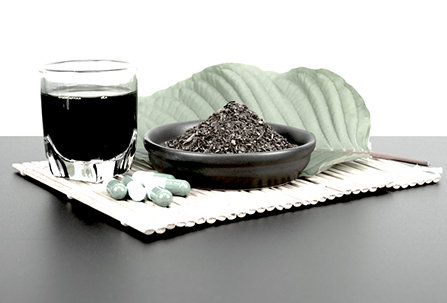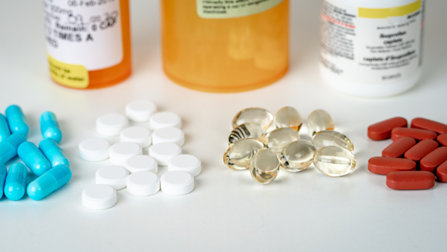Make Informed Choices:
The Value of Getting Informed on What You Are Putting into Your Body

In all of our advancements as a species, the human race still struggles with its shortcomings. We’re actively working on them, but they’re still there.
For one, have you ever noticed how impressionable the human race is? I don’t mean to rant about the frailties of what is an advanced species, but if you tell us something, we generally (more or less) believe it. And if you stand in a position of authority and tell us something, we almost always believe it.
Here’s an example from the medical and health industry. A recent news article in USA Today presented some concerning research on a new drug called kratom. For some time kratom was thought to be harmless. But now, thanks to some detailed study and an overall desire to learn more about the drug, we see that it is not harmless at all.
Learning the Truth about Kratom

Kratom is a legal herbal remedy sold over the counter at smoke shops, convenience stores, gas stations, and online. Kratom comes from Southeast Asia where it has been in use for centuries. In the U.S., the plant-based drug is sold as a powder, usually in capsule form. The purpose of the medicine is to act as a pain-relieving herbal remedy, something which can not only reduce physical pain, but which can also help ease fatigue, diarrhea, coughs, and opioid withdrawal.
Kratom has grown in popularity since 2011, with naturopaths and proponents of holistic health touting the drug as the “miraculous alternative” to addictive and dangerous opioid painkillers.
But new research has shown that consuming kratom is quite dangerous. Phone calls to poison control centers for kratom exposure increased 50-fold from 2011 to 2017. In 2011, there were only 13 such calls. In 2017, there were 682 calls. About a dozen people in the U.S. have died from using kratom (that we know of).
We were offered some excellent commentary on this issue from Henry Spiller, the director of the Central Ohio Poison Center. Spiller’s office led the study with help from the Center for Injury Research and Policy, the Research Institute at Nationwide Children’s Hospital, and a few other organizations. According to Spiller, “There is a significant increase in the number of cases [of adverse kratom exposure]. There’s a general feeling, I think, that this is a natural substance, so it’s safe. But we need to get across there are risks with this. If use continues to grow, we’re going to see these problems because it is a real potent substance.”
The research not only found a link between kratom and salmonella outbreaks in 20 different states, but the study also found a great deal of harmful potential side effects attendant with the use of kratom. Some of the side effects of taking kratom include:
- Agitation
- Tachycardia (an increase in heart rate that exceeds the standard resting rate)
- Nausea
- Vomiting
- Renal Failure (serious health problems within the kidneys).
- Irritability
- Drowsiness
- Lethargy
- Hypertension (high blood pressure)
- Confusion
- Respiratory depression (breathing too slowly for the body to get enough oxygen)
- Seizures
- Full respiratory arrest
- Cardiac arrest
- Increased bilirubin (a sign of liver damage)
- Bradycardia (dangerously slow action of the heart)
- Rhabdomyolysis (breakdown of muscle tissue).
So here is a drug which is promoted by some naturopaths as being “The safe and holistic alternative to opioid painkillers.” Yet, when we explore the science behind the kratom drug, we find all of these horrible truths about it. Those hundreds of people who called poison control centers due to adverse reactions from using the drug probably would not have experienced such crisis had they merely taken the effort to inform themselves.
Opioid Painkillers Are No Better

Don’t get me wrong. I am not writing this piece to throw shade on natural alternatives to pharmaceuticals. Big Pharma is not in my back pocket. If anything, the pharmaceutical opioid painkillers are far worse than kratom is or ever could be. The hands of men make opiate pills, not mother nature. Pharmaceutical companies decide how potent pharmaceutical opioids are, and they are making such drugs more and more potent with each passing year. Kratom can only be as potent as the kratom tree it came from.
The sky’s the limit with opioid pharmaceuticals, and Big Pharma is testing those limits with new strains of fentanyl, a new, “super opioid” called Dsuvia, and so on. While about a dozen people have died from kratom in the last eight years, tens of thousands of people have died from overdoses on opioid painkillers.
And again, it comes down to regular human beings like you and me, blindly following the instructions of someone else, be it a doctor who is telling us to take painkillers “for our own good,” or a friend who is telling us to pop pills “to be cool,” or some other circumstance.
It seems to me that human beings have a penchant for merely following orders, putting things into their bodies because a doctor, an opinion leader, or even just a peer told them to do so.
Take Your Health into Your Own Hands by Getting Informed
Narconon.org has great data for getting our readers informed about drug issues, about the various drugs and the risks they present, about alternatives, about signs of addiction, and so on. If you know someone who has taken bad advice, who started taking opioid painkillers or kratom because they were told to do so and they are now struggling because of it, have them read this article.
If you are looking for help with opioid addiction specifically, we have a lot of useful information on that subject too. We at Narconon believe that opioids of any kind can be harmful, particularly when not used exactly as prescribed. This article has more information on that subject.
Maybe you (or a family member) weren’t told to take opioid painkillers specifically, but you were encouraged to take a different pharmaceutical drug for a physical or psychological condition. Though we will not give medical advice to anyone, we do encourage you to proceed with caution. Take a look at this set of guidelines on potentially harmful prescription drugs before you continue with accepting a prescription.
One of the best things that we can do for ideal efficacy in any area of life is to get informed in that area. Whether it is physical health or wellness or any other subject matter, an informed participant will always come out better for it than an uninformed one will.
Sources:
- https://www.tandfonline.com/doi/abs/10.1080/15563650.2019.1569236
- https://www.usatoday.com/story/news/nation/2019/02/23/kratom-poisonings-herbal-drug-used-opioid-withdrawal-soar/2949239002/
- https://www.narconon.org/drug-rehab/how-to-seek-treatment.html
- https://www.narconon.org/drug-rehab/how-to-help-with-opiate-addiction.html
- https://www.narconon.org/drug-abuse/prescription/health-risk.html


 ®
®